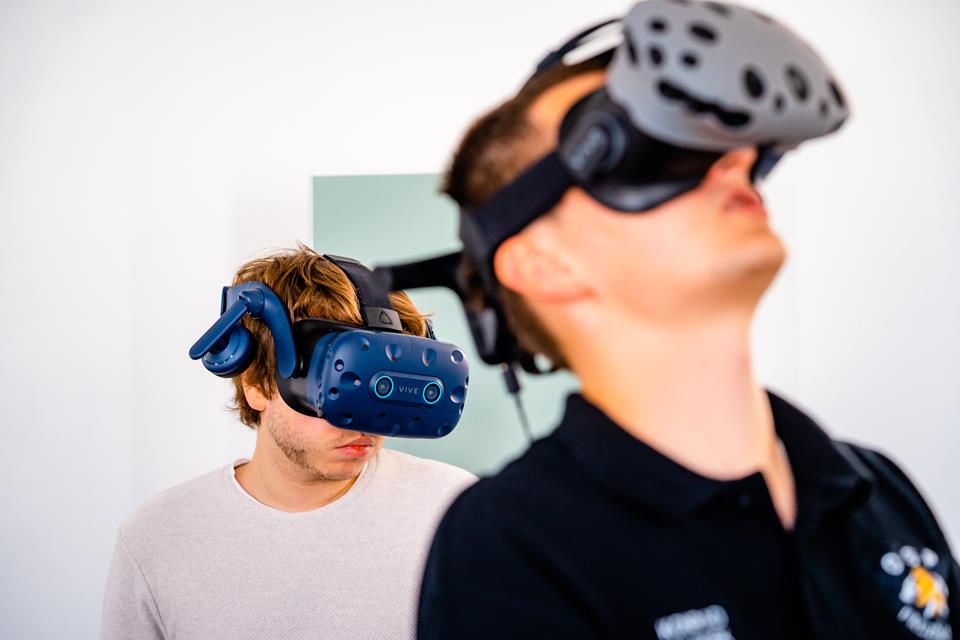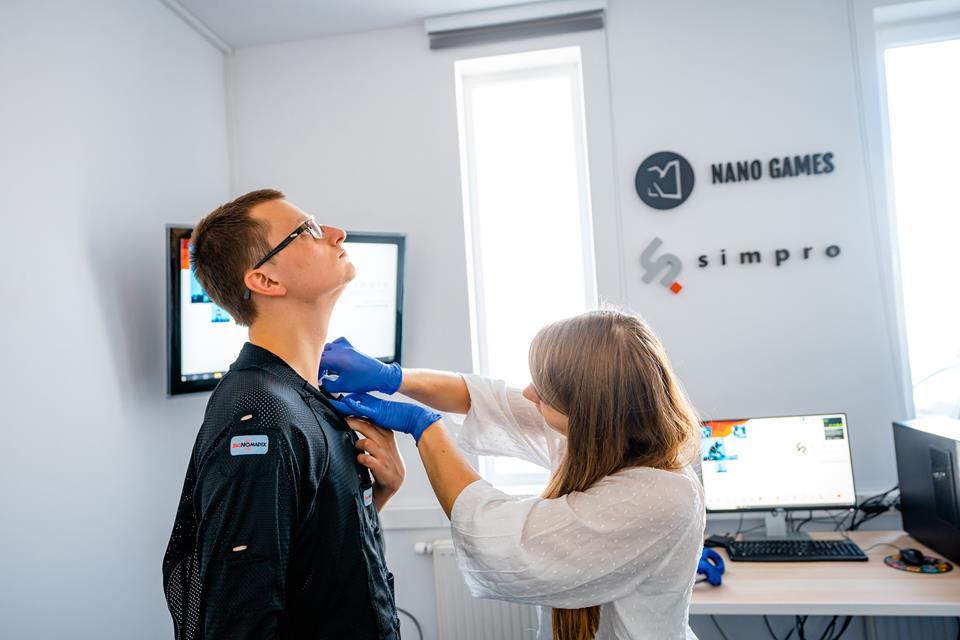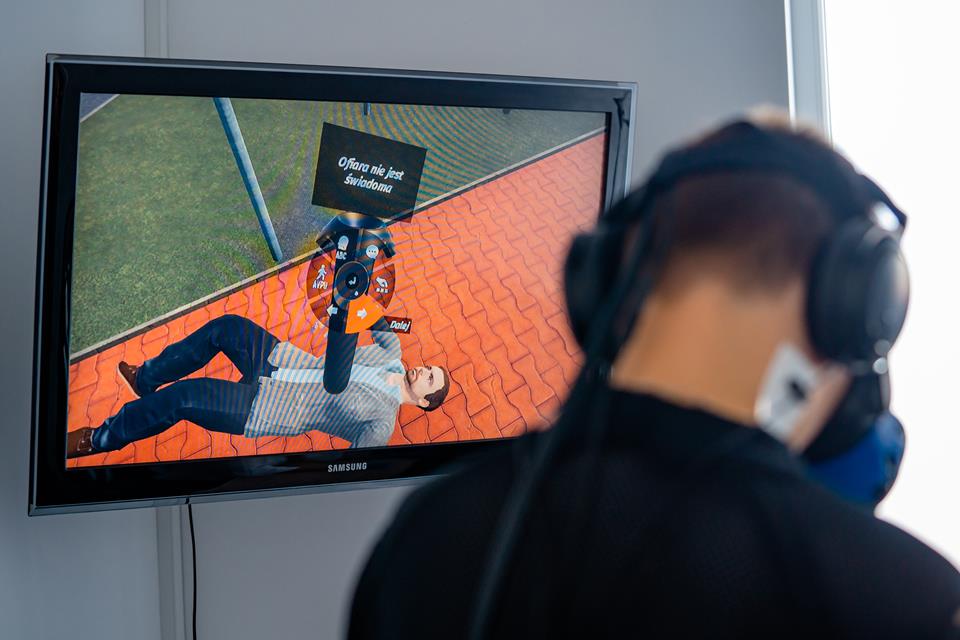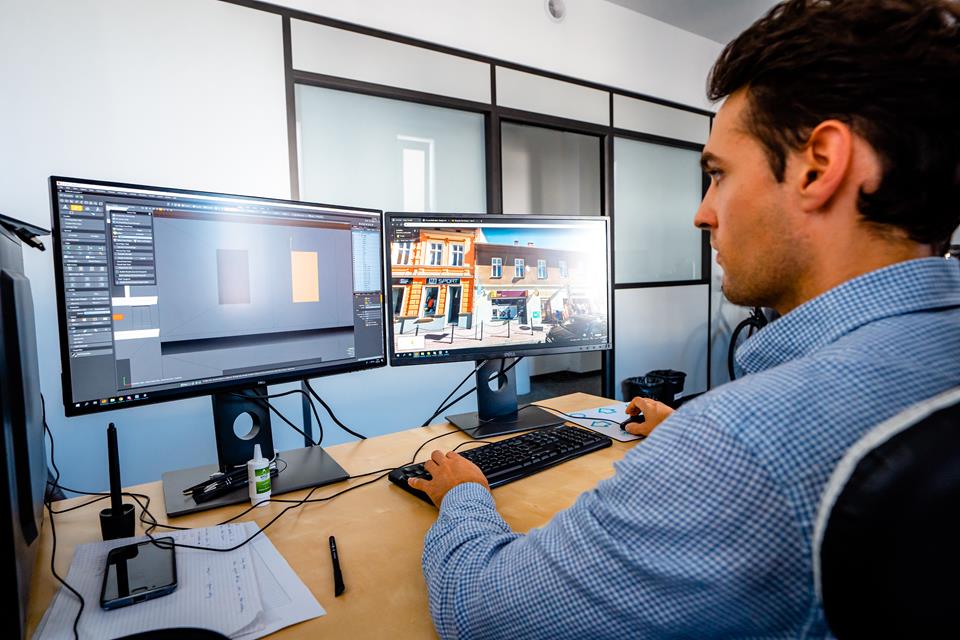
Science-based simulator
Virtual reality (VR) has usually been associated with entertainment, now it is increasingly gaining new applications. The Nano Games company based in Krakow produces training simulators under the Simpro brand. This innovative solution is being created thanks to the cooperation of IT developers with scientists from the Jagiellonian University.
The results of psychophysiological tests are used to create collective disaster simulator. They were performed on a group of over 600 firefighters who every day participate in rescue operations.
‘This research is necessary to create in the simulator such a realistic situation that will induce in the trainee the truly experienced state in situation of road or air crash or a terrorist attack,’ explains Paweł Strojny Ph.D., head of the research and development department of Nano Games and a research employee at the Department of Communication Social and Basic Research in Psychology at the Jagiellonian University. ‘Using modern equipment, we have tested among others cardiovascular activity of the body.’
An advanced simulator prototype will be created that will complement the training process of emergency services. Until now, the basis of the training relied on theoretical knowledge from textbooks and practical classes on the training ground. The simulator, which realistically reproduces specific scenarios, will enable training in terms of coordination of actions, making decisions and providing help under severe stress conditions. In this way, it will enrich the practical part of the training cycle.
- Findings of psychophysiological tests are used to develop the simulator
- Simulator provides realistic projections of specific scenarios
- Innovative solution is made through collaboration between developers and university scientists
Under the stress One of the topics raised by the project research team is the so-called social facilitation effect. It is a change in the speed and quality of performance of tasks when being observed by other people. The authors confirmed the hypothesis that the presence of bystanders controlled by a computer affects the course of action performed by firefighters. The conclusions of the study were used in the work on the simulator.
The added value of the project are publications in scientific journals and speeches at international conferences.
Project: Collective disaster simulator – research and preparation for implementation Project cost: approx. PLN 5 million, including approx. PLN 3.5 million from the European Regional Development Fund, Smart Growth Programme




